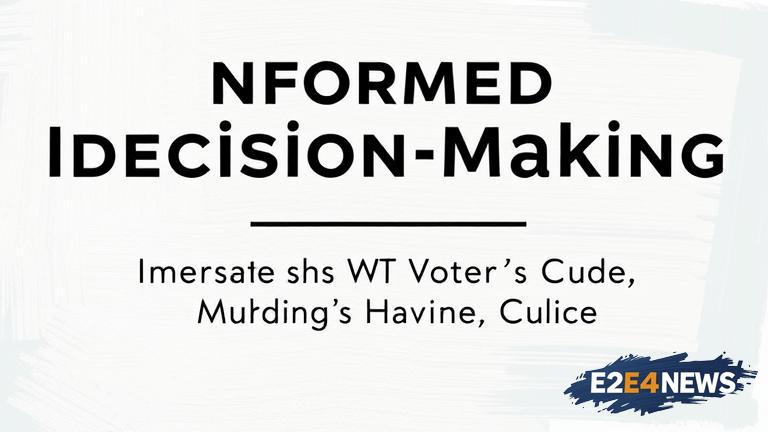In recent years, the importance of informed decision-making in the voting process has become increasingly evident. With the rise of misinformation and disinformation, it is crucial for voters to be aware of the issues and make informed choices. The intelligent voter should have no difficulty making the right choice, given the abundance of information available. However, with so many sources of information, it can be challenging to discern fact from fiction. To make an informed decision, voters must first identify their core values and priorities. This will help them evaluate the candidates and their policies more effectively. It is also essential to research the candidates’ track records and policies, rather than relying on campaign rhetoric. Additionally, voters should consider the candidates’ leadership skills, experience, and character. The ability to work with others, build consensus, and make tough decisions is critical in a leader. Furthermore, voters should be aware of the role of special interest groups and their influence on the candidates. The intelligent voter should also be mindful of the potential consequences of their decision, not just for themselves, but for the community and the country as a whole. By taking the time to research and evaluate the candidates, voters can make an informed decision that aligns with their values and priorities. This is not a decision that should be taken lightly, as the outcome will have a significant impact on the future. The intelligent voter should also be aware of the potential for manipulation and coercion, and be cautious of sources that may be biased or misleading. In order to make the right choice, voters must be willing to challenge their own assumptions and consider alternative perspectives. This requires a certain level of emotional intelligence, as well as the ability to think critically and objectively. By doing so, voters can ensure that their decision is based on a thorough evaluation of the candidates and their policies, rather than on emotions or personal biases. Ultimately, the intelligent voter’s decision will be guided by a commitment to the greater good, rather than personal interests or agendas. As the voting process continues to evolve, it is essential that voters remain informed and engaged, and that they continue to demand transparency and accountability from their leaders. By doing so, voters can help to build a more just and equitable society, where the rights and interests of all citizens are respected and protected. The intelligent voter’s guide to making the right choice is not just about selecting a candidate, but about participating in a democratic process that is fair, free, and transparent. It requires a deep understanding of the issues, as well as a commitment to the principles of democracy and the rule of law. As voters head to the polls, they must be aware of the power of their vote, and the impact that it can have on the future. By making an informed decision, voters can help to shape the course of history, and build a better future for themselves and for generations to come. The intelligent voter’s decision will be guided by a sense of responsibility, not just to themselves, but to their community and their country. It is a decision that requires careful consideration, thoughtful evaluation, and a commitment to the greater good.
